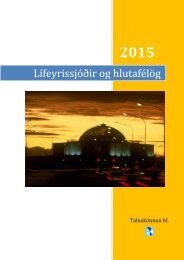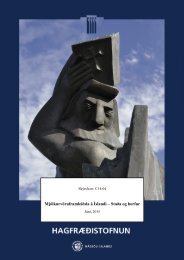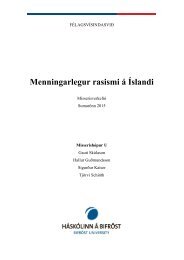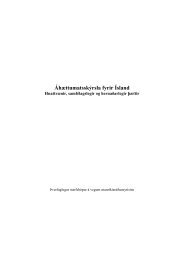Create successful ePaper yourself
Turn your PDF publications into a flip-book with our unique Google optimized e-Paper software.
WORLD REPORT 2016<br />
HUMAN RIGHTS WATCH<br />
United Arab Emirates<br />
The United Arab Emirates (UAE) continued in 2015 to arbitrarily detain and in<br />
some cases forcibly disappear individuals who criticized the authorities, and its<br />
security forces continued to face allegations that they torture detainees in pretrial<br />
detention. The UAE passed an anti-discrimination law that further jeopardizes<br />
free speech and is discriminatory in that it excludes references to gender<br />
and sexuality. Authorities denied access to the country to activists who criticized<br />
the UAE’s mistreatment of migrant workers.<br />
Arbitrary Detentions, Enforced Disappearances, and Torture<br />
Authorities forcibly disappeared and detained incommunicado individuals who<br />
criticized the government or its allies. Three Emirati sisters, Asma, Mariam,<br />
and Al Yazzyah al-Suweidi, spent three months in incommunicado detention<br />
after authorities called them to a police station in Abu Dhabi on February 15.<br />
The three, whom authorities eventually released without charge, had posted<br />
comments criticizing the UAE authorities’ unlawful imprisonment of Emirati dissidents,<br />
including their brother, Dr. Issa al-Suweidi.<br />
In August, 13 security officers in civilian clothes arrested Emirati academic<br />
Nasser bin Ghaith. He had made comments on social media criticizing the Egyptian<br />
security forces’ mass killing of demonstrators in Cairo’s Rab’a Square in<br />
2013 on the two-year anniversary of the massacre. Egypt is a key ally of the UAE<br />
government. Bin Ghaith’s whereabouts remained unknown at time of writing.<br />
Six Libyan nationals remained in detention without charge, more than a year<br />
after their arrests. Individuals who were arrested at the same time but subsequently<br />
released alleged that authorities tortured them in an attempt to secure<br />
confessions and said they heard other detainees being subjected to torture. The<br />
Libyans said their interrogators asked them about supposed links to the Muslim<br />
Brotherhood, which the UAE has designated a terrorist organization, and described<br />
being subjected to beatings, forced standing, and threats of rape, electrocution,<br />
and death.<br />
Freedom of Expression<br />
People who speak with rights groups remained at serious risk of arbitrary detention<br />
and imprisonment. The 2014 counterterrorism law provides for the death<br />
penalty for people whose activities are found to “undermine national unity or social<br />
peace,” even if these acts do not include an element of violence or intended<br />
violence.<br />
In May, local media reported that the Federal Supreme Court sentenced a UAE<br />
national, Ahmed Abdulla al-Wahdi, to 10 years in prison for “creating and running<br />
a social media account that insults the UAE’s leadership and the country’s<br />
institutions.” In June, local media reported that the Federal Supreme Court<br />
found that Nasser al-Junaibi, a UAE national, had “spread rumors and information<br />
that harmed the country” and “insulted government entities,” and sentenced<br />
him to three years in prison.<br />
Authorities cited “national security” grounds as the reason for denying activists<br />
who have criticized the UAE’s mistreatment of migrant workers entry to the UAE.<br />
Federal Decree Law no. 2 of 2015 on anti-discrimination and anti-hate contains<br />
numerous broadly worded provisions that further jeopardize free speech. Enacted<br />
in July, the law provides for a minimum of five years in jail for anyone who<br />
commits “an act that may instigate any form of discrimination, using any forms<br />
of expression or any means.” Article 3 of the law says that freedom of expression<br />
cannot be invoked as a defense in cases relating to acts or statements “that may<br />
incite the contempt of religions that offend them.”<br />
Freedom of Association and Movement<br />
Family members of political detainees imprisoned in a mass trial in 2013 complained<br />
of repeated harassment by the authorities, including the freezing of assets,<br />
the denial of government security clearances required to secure<br />
employment, and the imposition of foreign travel bans that they cannot challenge.<br />
604<br />
605










